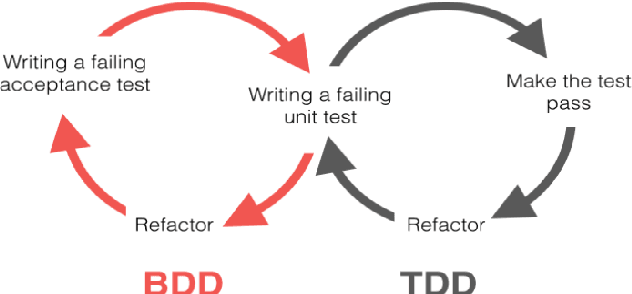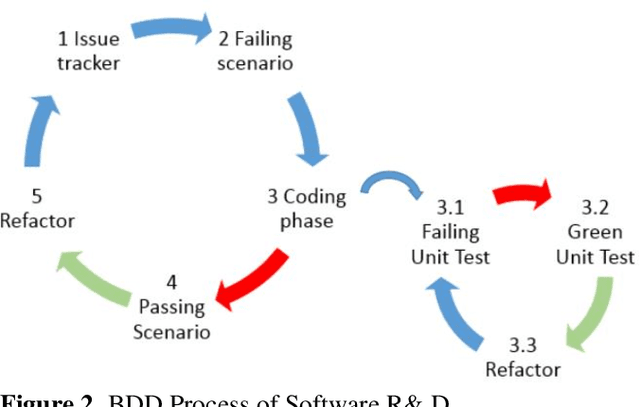A Comparative Study on the Impact of Test-Driven Development (TDD) and Behavior-Driven Development (BDD) on Enterprise Software Delivery Effectiveness
Paper and Code
Nov 05, 2024


This paper compares the impact of Test-Driven Development (TDD) and Behavior-Driven Development (BDD) on software delivery effectiveness within enterprise environments. Using a qualitative research design, data were collected through in-depth interviews with developers and project managers from enterprises adopting TDD or BDD. Moreover, the findings reveal distinct effects of each model on delivery speed, software quality, and team collaboration. Specifically, TDD emphasizes early testing and iterative development, leading to enhanced code quality and fewer defects, while BDD improves cross-functional communication by focusing on behavior specifications that involve stakeholders directly. However, TDD may create a higher initial time investment, and BDD might encounter challenges in requirement clarity. These differences highlight gaps in understanding how each model aligns with varying project types and stakeholder needs, which can guide enterprises in selecting the most suitable model for their unique requirements. The study contributes to the literature by providing insights into the practical application and challenges of TDD and BDD, suggesting future research on their long-term impacts in diverse settings.
 Add to Chrome
Add to Chrome Add to Firefox
Add to Firefox Add to Edge
Add to Edge